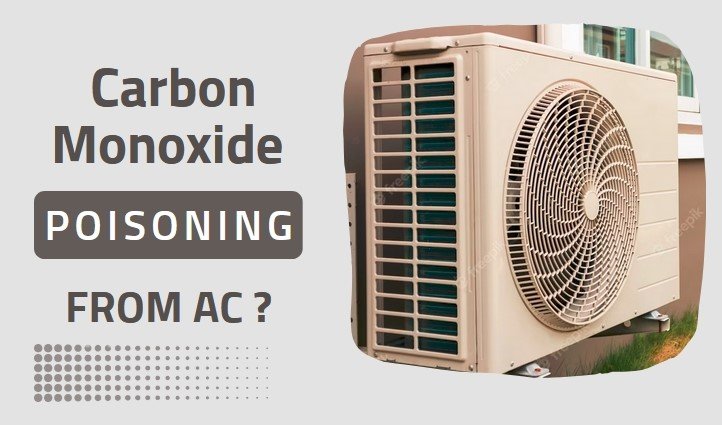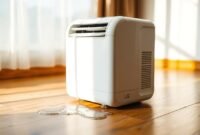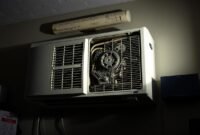Can you get carbon monoxide poisoning from AC? Carbon monoxide poisoning and leak is one of the many things homeowners are afraid of. Since the gas is odorless and colorless, you can’t tell whether it happens to you.
Before you know it, you may be sick or lose consciousness. And if you aren’t aware of the symptoms, you may put yourself (and your loved ones) in danger. So, is it possible that your AC poisons you?
Carbon Monoxide Poisoning Symptoms
As a silent killer, it can be hard to detect the carbon monoxide leak and poisoning. That’s why you should know the symptoms, such as:
- Fatigue
- Headache
- Nausea
- Breath shortness
- Chest pain
- Memory loss
If you or any of your family members experience these signs, and you know that you don’t have any medical issues, then you should get yourself checked and have an expert check your AC system.

Most of these symptoms may be similar to the flu, but the memory loss gives it away. If you suspect yourself of having these signs, immediately check yourself.
Read also: Symptoms of Low Freon in Central Air Conditioners
Can Air Conditioning Kill You?
Essentially, air conditioners do not produce carbon monoxide, so they are unlikely to cause carbon monoxide poisoning. Carbon monoxide is a colorless, odorless gas typically produced by fuel-burning appliances, not by electrical air conditioning units. However, it’s important to be aware of other potential sources of carbon monoxide in your home.
The AC unit is running on electricity, and it doesn’t produce flames, so it would be impossible for it to produce carbon monoxide.
However, it doesn’t mean that you are completely free from carbon monoxide leaks or poisoning because other devices may cause the poisoning.
If you have a gas furnace (within your HVAC system), you may have such a leak. Moreover, other devices may produce the dangerous gas, such as:
- Water heaters
- Furnaces
- Fireplaces burning on gas and wood
- Stoves and gas ovens
- Dryers
If you have devices or appliances that burn fuel, charcoal, or wood, they can leak carbon monoxide. If you have an attached garage, you are being exposed to carbon monoxide poisoning. So, the answer to the question can be an air conditioner poison you are a definite no.
Preventing the Leak
To prevent carbon monoxide leaks and ensure safety, it’s crucial to take proactive measures. Installing carbon monoxide detectors in key areas of your home, especially near bedrooms, can alert you if levels of carbon monoxide rise.
Regularly checking windows and doors for proper sealing can also help prevent carbon monoxide from leaking into your home.
· Installing Detectors
It’s almost similar to smoke detectors. You should have one on each floor, especially in the bedrooms. Many carbon monoxide poisoning cases happen when the homeowners sleep, so having the detectors can be a lifesaver. You only need to change the batteries once in 6 months to maintain the condition.
· Avoid Some Appliances Indoors
Several appliances shouldn’t be used indoors, especially gas-burning appliances. If you have an attached garage, you are still exposed to the poisoning risk because the carbon monoxide can enter the house undetected.
It doesn’t matter how many doors or windows you have or whether you leave the door open. Some appliances should be used at a minimum of 20 feet away (from the house), such as:
- Motorcycles and vehicles
- Barbecues
- (Gas burning) appliances
· Regular Maintenance
You must perform routine maintenance and care if you already have gas-burning (indoor) appliances. Make sure that a professional service checks on them once in 6 months (or twice per year). It’s better to be cautious about the whole thing than sorry. Before any of these appliances get bad, you should maintain their good condition.
Final Words
In conclusion, while air conditioners do not pose a risk of carbon monoxide poisoning, being vigilant about other potential sources in your home is important. Understanding the symptoms of carbon monoxide poisoning and ensuring your home is equipped with carbon monoxide detectors can significantly enhance your safety.
But you should still be aware of other possibilities, as other gas-burning devices can generate lethal gas.


